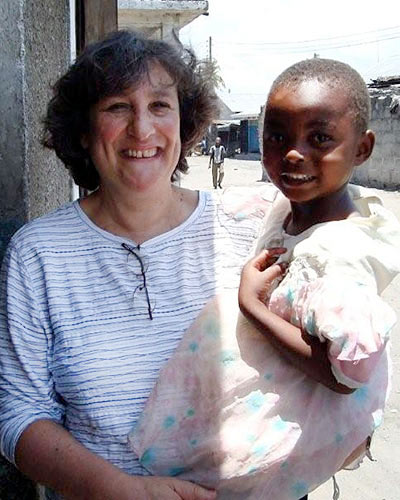November 15, 2017

University of Maryland School of Medicine Researchers Explore How to Prevent Diarrheal Diseases, a Leading Cause of Death in Young Children in Sub-Saharan Africa and South Asia.
Each year, more than half a million deaths among children under five years of age around the world are caused by diarrheal diseases – largely due to insufficient access to adequate hygiene, sanitation and clean drinking water. While there are effective preventive measures available, including vaccines, adoption is lagging in low-resource settings where the most severe cases occur.
Research conducted at the University of Maryland School of Medicine (UM SOM), has identified four pathogens that are responsible for the vast majority of diarrheal illnesses – leading the way for potential new treatments.
In a recent paper published in Pediatric Clinics of North America, “The Burden and Etiology of Diarrheal Illness in Developing Countries,” Karen Kotloff, MD, Professor of Pediatrics and Head of the Division of Infectious Disease and Tropical Pediatrics at UM SOM, outlined the impact and challenges of diarrheal diseases, identified the key pathogens responsible and discussed the interventions to prevent and treat this serious issue. The research was conducted in areas where there is a high burden of diarrheal illness. This included The Gambia, Kenya, Mali, Mozambique, Bangladesh, India and Pakistan.
Dr. Kotloff said that the five key strategies to prevent diarrheal diseases and related complications are vaccination, oral rehydration salts, administering zinc, maintaining good nutrition, and the practice of proper hygiene, particularly handwashing.
At present, there are rotavirus vaccines available internationally that are derived from live, but mild, strains, and WHO has recommended that the rotavirus vaccine for infants be included in all national immunization programs, particularly in countries where diarrheal deaths account for more than 10 percent of mortality among children under five.
“We are on the cusp of a dramatic shift in the epidemiology of pediatric diarrheal diseases since rotavirus vaccines became available,” Dr. Kotloff said. “However, adoption of a rotavirus vaccine regime is lagging in low-resource settings where the most severe cases occur.”
Research shows some vaccines have not been as effective in the world’s poorest countries. To better understand this, investigators at UM SOM’s CVD are studying the impact of vaccine introduction on the cause and incidence and cause of diarrhea in sub-Saharan Africa. Dr. Kotloff and her team are studying the effectiveness and safety of a new enhanced thermostable formulation of a rotavirus vaccine called RotaTeqTM in Mali, which is intended to be more resistant to temperature fluctuations.
Contact
Office of Public Affairs
655 West Baltimore Street
Bressler Research Building 14-002
Baltimore, Maryland 21201-1559
Contact Media Relations
(410) 706-5260